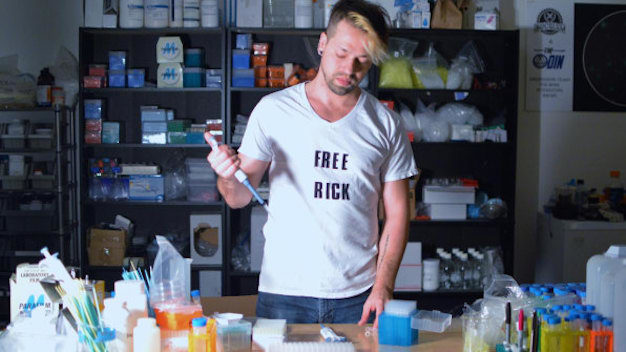
Biohacking: the future of the biosciences?
DIY biology has morphed into a subversive social movement.
Media outlets are in a frenzy over the latest quirky development in the biosciences – the advent of the so-called “biohacking” movement.
Biohacking, or do-it-yourself biology, attempts to take what have traditionally been university or institute-based scientific disciplines – molecular biology, genetics, bioengineering, and so forth – and make them more available to the general public.
Several grass-roots biohacking organisations have surfaced in the US in recent years, including biophysicist Josiah Zayner’s company The Odin. Zayner aims to make experimental biotechnologies available to the public – particularly equipment for genetic engineering. Some of his most successful products include a bacterial CRISPR and fluorescent yeast kit for making glow-in-the-dark beer, and a genetic engineering home lab kit (sold for just a touch under US$2000). In a recent interview with The Atlantic, Zayner commented:
One of my big problems with academic and medical science is [that] lots of stuff…won’t be available to the general public for 10, 20, 30, 40 years…How do you expect this technology go forward if they aren’t testing, playing around it?
What is too early and what is too late? I don’t know if there’s an answer. I don’t know if I’m the correct one to ask that question. But maybe activists putting this knowledge out there, letting people know how easy and accessible it is, can spur people to push this stuff.
Critics of the biohacking movement say that many of the experiments performed are extremely dangerous, and promote irresponsible research practices. The US Food and Drug Administration recently issued a harshly worded statement cautioning consumers against DIY gene-therapy kits and calling their sale illegal.
Last October Zayner himself injected his arm with DNA encoding for CRISPR that could theoretically enhance his muscles—in between taking swigs of Scotch at a live-streamed event. He later said he regretted the stunt. “There’s no doubt in my mind that somebody is going to end up hurt eventually”.
Earlier this month, Aaron Traywick of Ascendance Biomedical – another biohacking company –injected himself with an untested herpes treatment at an event in Austin, Texas.
Biohacking: the future of the biosciences?
Xavier Symons
Creative commons
https://www.bioedge.org/images/2008images/3_how_to_genetically_modify_yo.jpg
biohacking
fda
genetic engineering
us
- Can machines be moral? - March 7, 2021
- Can we synthesise Christianity moral theology with secular bioethics? - November 28, 2020
- Euthanasia polling data may fail to capture people’s considered views - August 15, 2020
